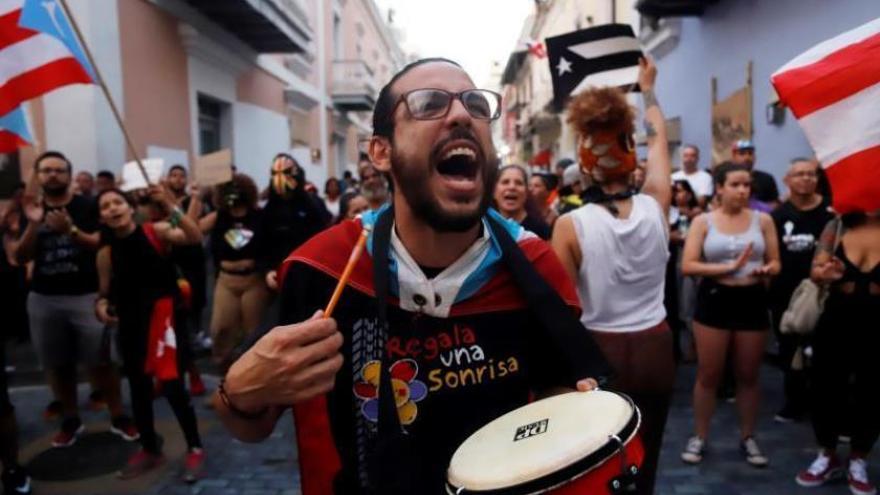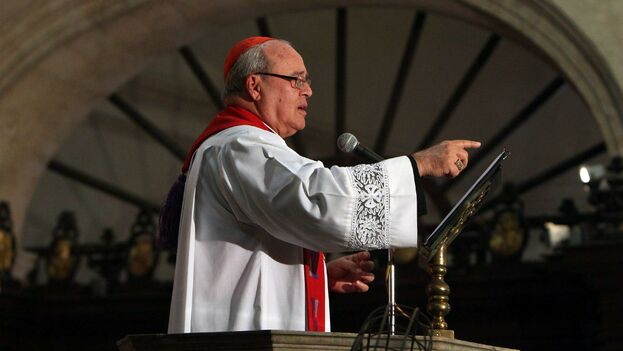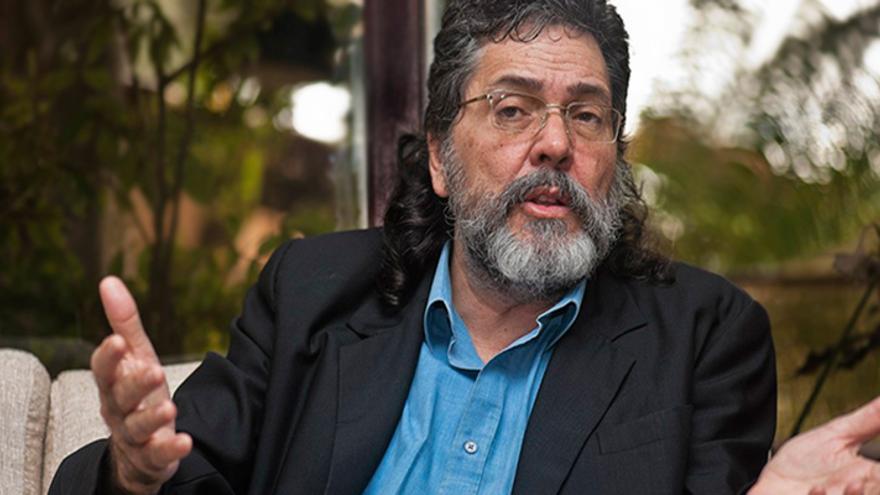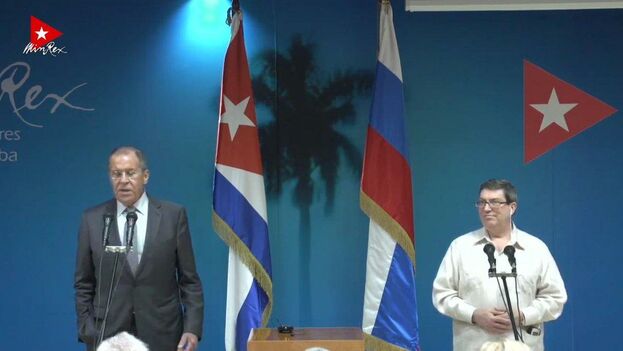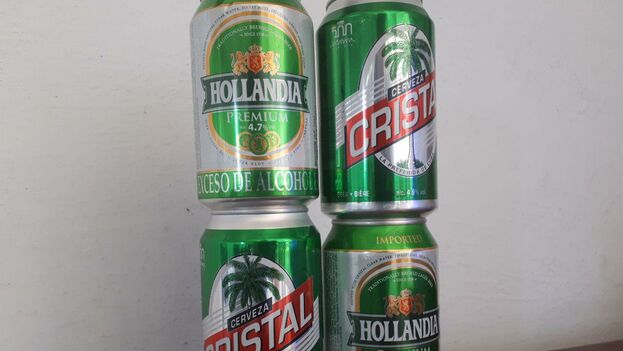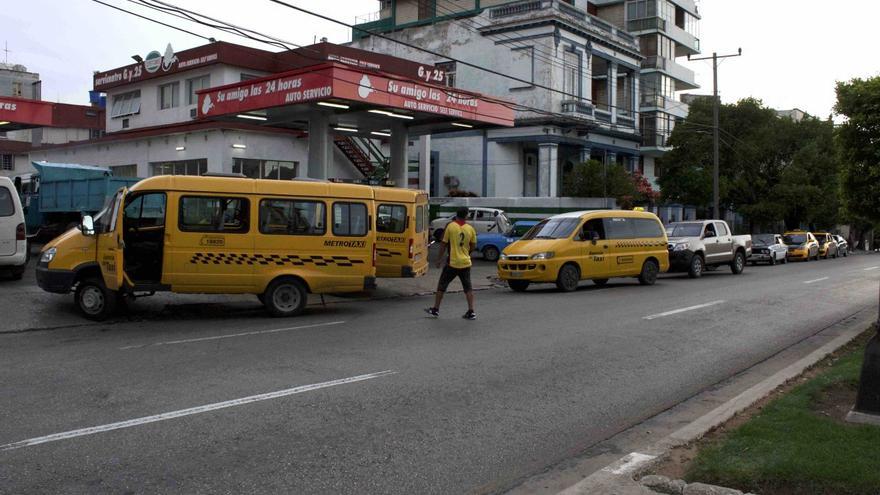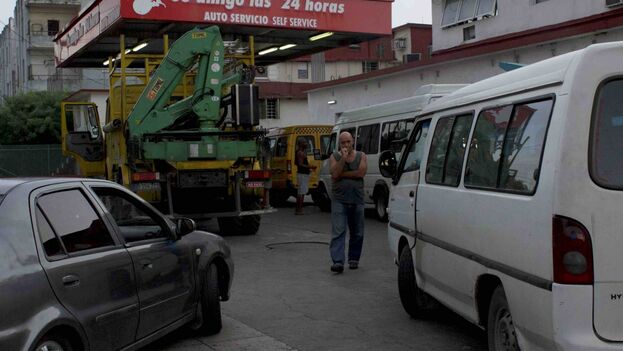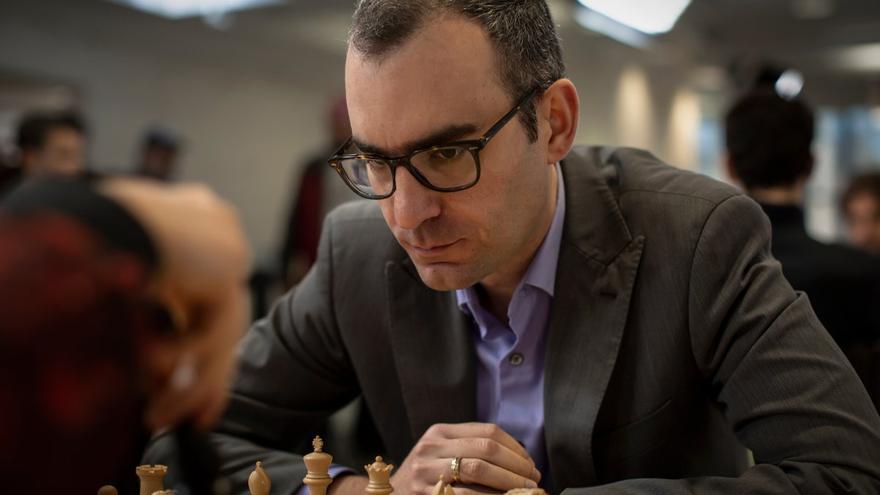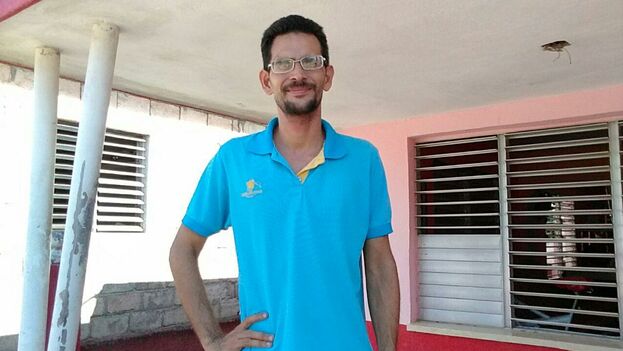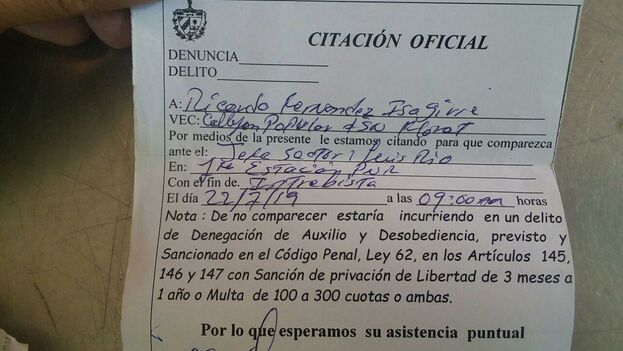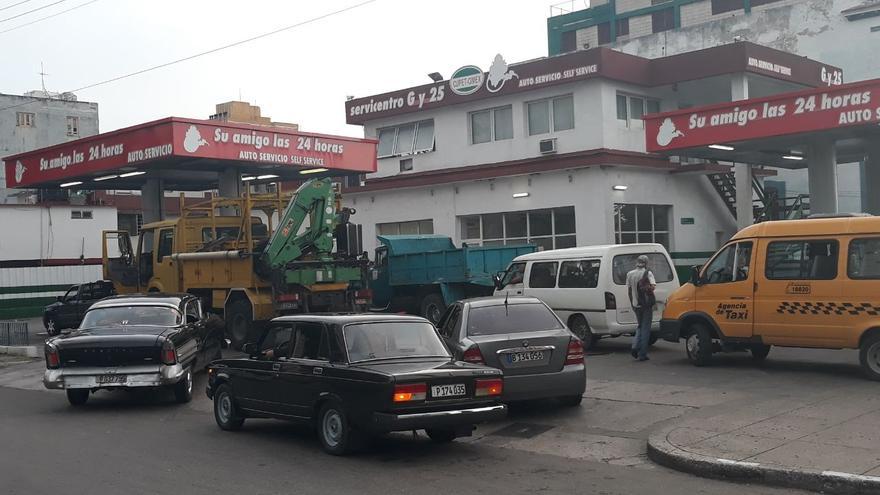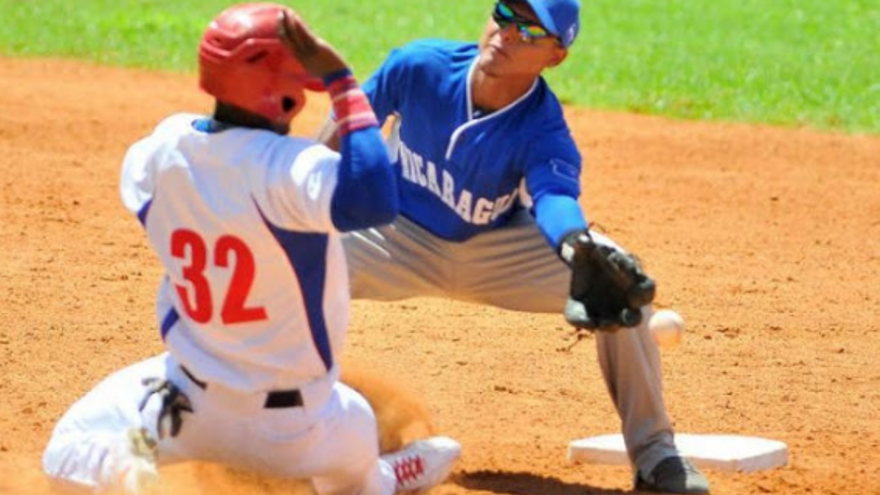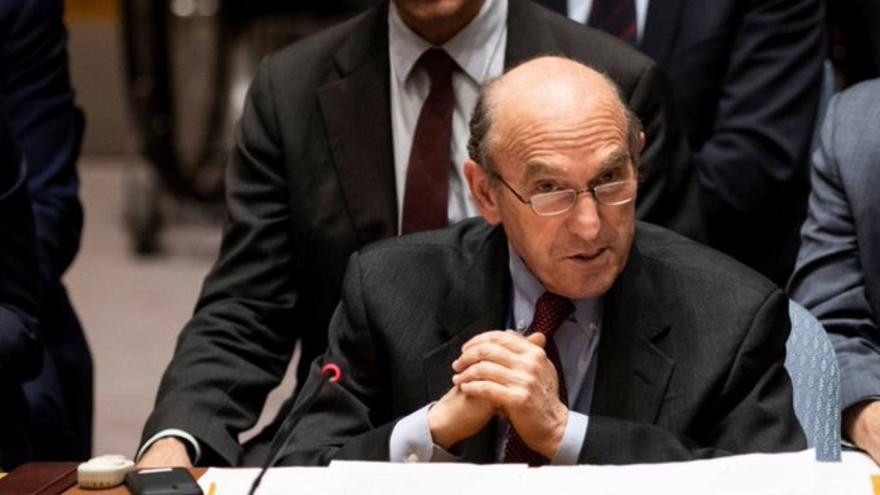
![]() 14ymedio, Havana, 22 July 2019 — Elliott Abrams, a special US envoy for Venezuela, has estimated 25,000 Cubans reside in the country who provide information to the Nicolás Maduro regime, as detailed in an interview with the Spanish newspaper ABC. The ambassador places about 3,000 the Island’s collaborators in Caracas engaged in intelligence work, spying on the military and civilians, or teaching how to torture. The remainder, doctors or teachers, “can also be spies and informers.”
14ymedio, Havana, 22 July 2019 — Elliott Abrams, a special US envoy for Venezuela, has estimated 25,000 Cubans reside in the country who provide information to the Nicolás Maduro regime, as detailed in an interview with the Spanish newspaper ABC. The ambassador places about 3,000 the Island’s collaborators in Caracas engaged in intelligence work, spying on the military and civilians, or teaching how to torture. The remainder, doctors or teachers, “can also be spies and informers.”
“To understand [Cuba’s] influence, it is enough to remember that Maduro’s bodyguards are Cubans. As I see it, Cubans are the central nervous system of the regime,” Abrams said, also suggesting the possibility that the attempted coup d’etat on April 30 was discovered by Cuban spies and frustrated by that.
Elliott believes that the survival of both regimes is very connected, mainly by oil. “We must now put pressure on the few remaining undemocratic countries [in Latin America], Cuba and Venezuela among them. In the case of Venezuela, I think it is also clear that, given its economic crisis, it is not a country that can continue offering subsidies to Cuba, because it is giving the Island between 50,000 and 80,000 barrels of crude oil per day. That, we estimate, amounts to $75 million a month, which is not a small amount of money,” he said.
The New York politician also analyzes the relevance of the Russian role in the survival of the Chavista regime. The support of that power is basic, he argues, among other reasons because of the power of its veto in the UN Security Council.
Although Elliott points out that China also joins with Russia in blocking condemnations in the international organization, his intuition tells him that it would stop doing so if it were not for going along with Russia.
The Rosneft oil company is another practical reason why the support remains seamless. The Venezuelan government owes the Russian company more than 8 billion dollars and has asked it to help it sell its oil after the US applied sanctions to PDVSA, the state-owned oil company. Thus, Elliott believes, Venezuela endures despite the difficulties.
In spite of everything, the American believes that the sanctions are effective and a way to go. In the interview, Elliott speaks about individual penalties, such as those applied to four senior officers, recently, for the death of Captain Rafael Acosta Arévalo.
“If the sanctioned person is accustomed to coming to Miami, if he has an apartment or savings here, something more frequent than it seems, that ends. I can say that we have been approached by several people of the regime very concerned about the sanctions and asking for them to be lifted, especially when they affect their family, because such sanctions can be extended to the family of the affected, and there are those who have their children in American universities. So we are convinced that these sanctions have a real and concrete impact,” he said.
Elliott also spoke of the possible withdrawal of these sanctions if the punished collaborate, as has been the case with General Manuel Cristopher Figuera, against whom they were lifted after he aligned himself with the head of Parliament, Juan Guaidó, and started to collaborate with the US Government. “His should be an example for others. The same thing we have done with him we can do with others,” he says.
The ambassador had explained that the United States is trying for a transition in Venezuela without resorting to force, although it does not expressly reject it. Elliott says that the ideal, according to Washington, is for Maduro to leave power and the different parties to negotiate a transitional government that will take the country to new elections.
He admits, in this, certain divergences with the European Union, since Brussels believes in a supervised election and Washington considers that this panorama is impossible with all the powers controlled by Chavismo.
In this regard, he believes that the statements made recently by the acting Spanish Foreign Minister and future head of European diplomacy Josep Borrell about the US Government are not positive. The Spanish chancellor said in May that Washington behaves in relation to Venezuela “as the cowboy of the west,” when in this situation “it is not for anyone to draw their guns” but to find “a peaceful, negotiated and democratic solution.”
Despite this, he does consider the position of the Government of Spain positive. “We agree on the result we want. We both want a true democracy through free elections to stop the terrible violations of human rights. The difference is in the transition period.”
Also the report made by the UN High Commissioner for Human Rights, Michelle Bachelet, is a source of satisfaction for Elliott, who confesses that the US government is very impressed with its strength. However, he also believes she missed an important task, as she could have requested to visit prisons and did not do so.
Finally, and although he emphasizes that the military route is the last option for his Government, he admits that it is not ruled out. “No one could have told George H. W. Bush in the 1988 elections that he would end up invading Panama! So we will see what the future brings us, for now, suffice it to say that we have the ability to use military pressure.”
___________________________
The 14ymedio team is committed to serious journalism that reflects the reality of deep Cuba. Thank you for joining us on this long road. We invite you to continue supporting us, but this time by becoming a member of 14ymedio. Together we can continue to transform journalism in Cuba.

